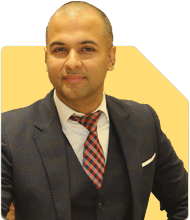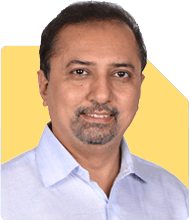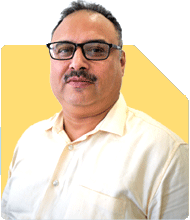Harsh Bharwani | Answer |Ask -Follow
Entrepreneurship Expert - Answered on Aug 24, 2023
As CEO and managing director, he leads the international business and employability initiatives at the computer networking institute, Jetking Infotrain Limited.
After graduating from Delhi University, Bharwani joined the family business in 2010 and set up operations in the US and Vietnam.
He has trained over three lakh students in employability, confidence and key life skills.... more

I am a State Govt. Employee in Tripura. I want to start a business. Please help me.
Write your business plan your business plan is the foundation of your business. It’s a roadmap for how to structure, run, and grow your new business. You’ll use it to move people that working with you — or investing in your company is a smartchoice. Fund your business your business plan will help you figure out how important plutocrat you’ll need to start your business. However, you’ll need to either raise or adopt the capital, If you do not have that quantum on hand. Fortunately, there are more ways than ever to find the capital you need.
Pick your business position your business position is one of the most important opinions you’ll make. Whether you’re setting up a slipup- and- mortar business or launching an online store, the choices you make could affect your levies, legal conditions, and profit.
Choose a business structure the legal structure you choose for your business will impact your business enrollment conditions, how important you pay in levies, and your particular liability. Choose your business name It’s not easy to pick the perfect name. You’ll want one that reflects your brand and captures your spirit. You’ll also want to make sure your business name is n’t formerly being used by someone differently.
Register your business Once you’ve picked the perfect business name, it’s time to make it legal and cover your brand. However, you’ll need to register with the civil government, and perhaps your state government, If you’re doing business under a name different than your own.
Get civil and state duty IDs you’ll use your employer identification number ( EIN) for important way to start and grow your business, like opening a bank account and paying levies. It’s like a social security number for your business. Some but not all — countries bear you to get a duty ID as well. Apply for licenses and permits keep your business running easily by staying fairly biddable. The licenses and permits you need for your business will vary by assiduity, state, position, and other factors.
Open a business bank account A small business checking account can help you handle legal, duty, and day- to- day issues. The good news is it’s easy to set one up if you have the right enrollments and paperwork ready.
You may like to see similar questions and answers below
Chandu Nair | Answer |Ask -Follow
VC, Angel Investing, Entrepreneurship Expert - Answered on Jul 30, 2023
Baqar Iftikhar Naqvi | Answer |Ask -Follow
Start-up Mentor - Answered on Sep 16, 2023
Ramalingam Kalirajan |10906 Answers |Ask -Follow
Mutual Funds, Financial Planning Expert - Answered on Dec 19, 2025
Nayagam P P |10859 Answers |Ask -Follow
Career Counsellor - Answered on Dec 19, 2025
Ramalingam Kalirajan |10906 Answers |Ask -Follow
Mutual Funds, Financial Planning Expert - Answered on Dec 19, 2025
Ramalingam Kalirajan |10906 Answers |Ask -Follow
Mutual Funds, Financial Planning Expert - Answered on Dec 19, 2025
Ramalingam Kalirajan |10906 Answers |Ask -Follow
Mutual Funds, Financial Planning Expert - Answered on Dec 19, 2025
Radheshyam Zanwar |6751 Answers |Ask -Follow
MHT-CET, IIT-JEE, NEET-UG Expert - Answered on Dec 19, 2025
Radheshyam Zanwar |6751 Answers |Ask -Follow
MHT-CET, IIT-JEE, NEET-UG Expert - Answered on Dec 19, 2025
Samraat Jadhav |2514 Answers |Ask -Follow
Stock Market Expert - Answered on Dec 18, 2025
Reetika Sharma |432 Answers |Ask -Follow
Financial Planner, MF and Insurance Expert - Answered on Dec 18, 2025
Reetika Sharma |432 Answers |Ask -Follow
Financial Planner, MF and Insurance Expert - Answered on Dec 18, 2025























